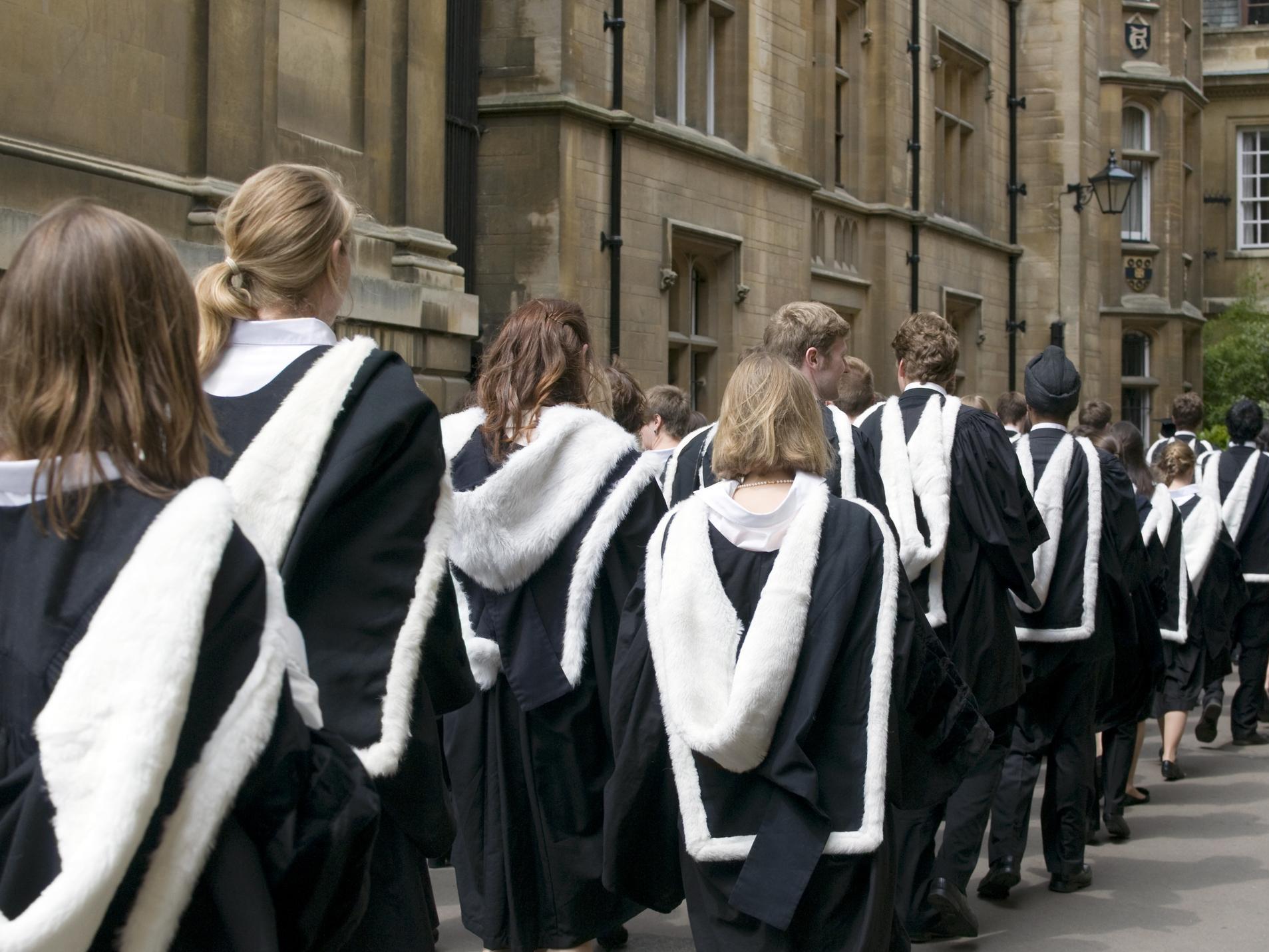Why is the gap in earnings between female and male graduates so stark?
Women in their 30s fall further behind in the workplace. Eleanor Busby looks at why


Young women secure better GCSE and A-level grades on average than their male peers and they are significantly more likely to go to university than men.
But once these graduates enter the workplace, men reap the benefits when it comes to wages especially after the age of 29, the latest analysis from the Institute for Fiscal Studies (IFS) shows.
The gender pay gap for graduates in their 30s is bleak. Median earnings of men who attended university rise by about £15,000 from age 30 to 40, compared to just £5,000 for women.
Jack Britton, co-author of the IFS report, said the difference was presumably because women take some time out in this period to have children, but he said the numbers were still “extremely stark”.
The data suggests that women who studied certain subjects at university – like architecture, economics and philosophy – actually saw their earnings go backwards during this period.
And across their lifetimes, male graduates enjoy an earnings boost of around £130,000 if they go to university compared to their pay if they do not. The figure for women is £100,000.
Another surprising finding is that women who secure a place at a prestigious university do not gain a clear financial benefit compared to those who go to a university with lower entry requirements.
And yet men who earn a place at a Russell Group university can expect much higher returns – on average earning nearly £400,000 more over their lifetimes – than those who attend a less selective institution.
For women, the differences between university types are less stark. Russell Group graduates have higher returns at age 30, but women from other universities overtake them at later ages.
Part of this could be down to subject choice at university, with women more likely to choose degrees at universities that do not necessarily lead to high earnings.
But the “glass ceiling” effect in the workplace may also have had an effect, researchers say.
“Men are able to get into high management positions in banks and law firms,” suggested Ben Waltmann, co-author of the IFS report. “Women, on average, are not. Men from Oxbridge would be able to get into these positions and women from Russell Group universities wouldn’t.”
Researchers could not say conclusively why the experiences of female and male graduates are so different in the workplace.
But it is undeniable that the report paints a negative picture for women who choose a university education, especially those who work hard to secure a place at an elite institution to get ahead.
Join our commenting forum
Join thought-provoking conversations, follow other Independent readers and see their replies
Comments